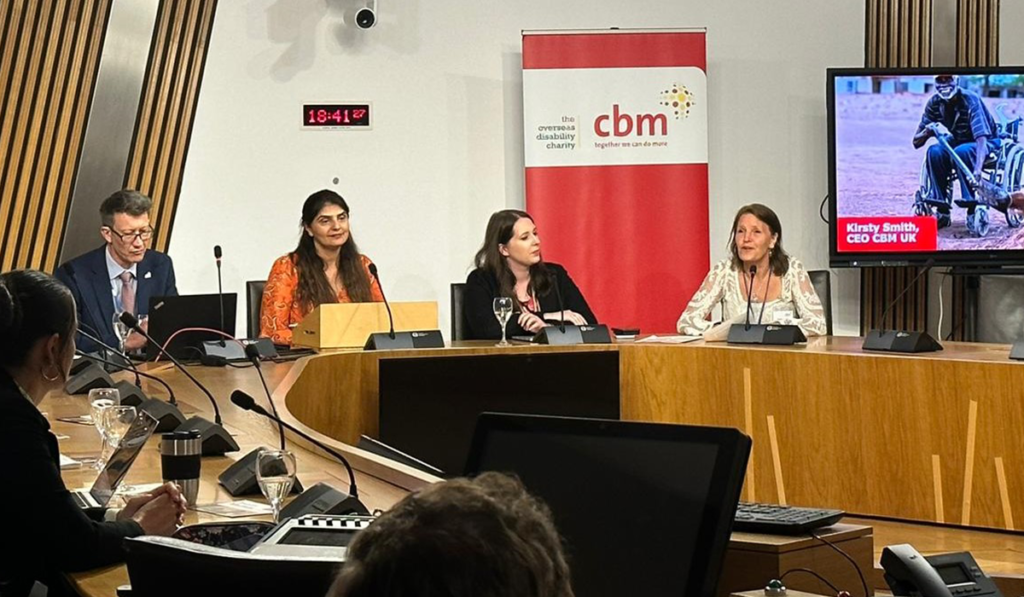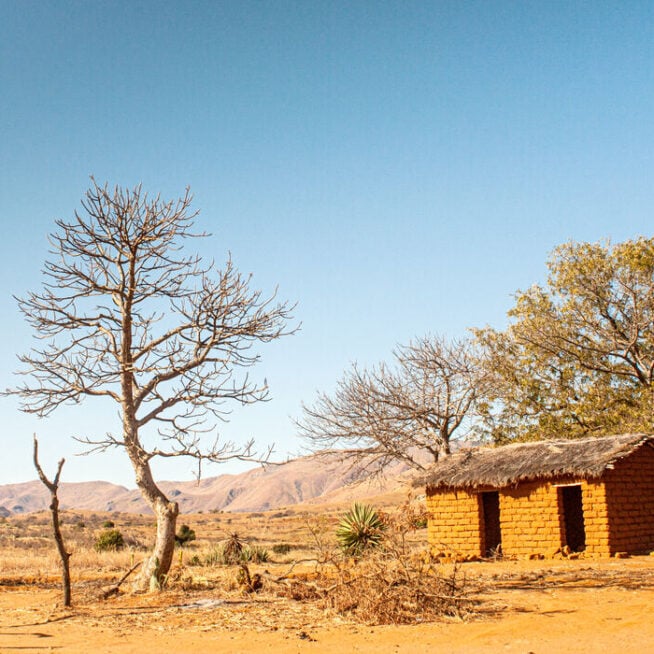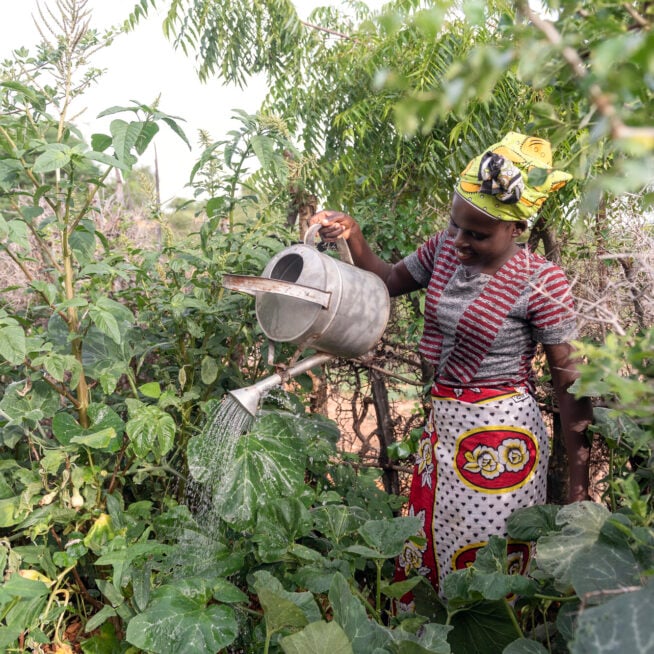Want to transform lives with us? Stay in touch and hear about our news, activities and appeals by email!
Why climate change must be disability inclusive

How are disability inclusion, climate change and mental health linked within international development? CBM UK sought to respond to this question at a recent event at the Scottish Parliament on Climate Change, Disability Inclusion, Wellbeing & International Development which brought together CBM UK global partners, mental health experts, members of the Scottish Parliament, supporters, government and sector colleagues.
The event sought to highlight the voices of people with disabilities and their representative organisations who are responding to the impacts of climate change in their communities, to explore how climate change impacts particularly on the mental health and resilience of people with disabilities, and to identify specific actions that can be taken for a more holistic approach to overcome barriers and enhance wellbeing.
Video footage and testimony from partners in Malawi who provide mental health support to marginalised communities exposed to climate change events, provided powerful reminders of the urgent need for a more holistic and fully inclusive response to climate change. A highlight was hearing from Johnson Fani-Matenga, Programme Manager at CBM UK partner Regional Psychosocial Support Initiatives (REPSSI), who addressed attendees live from Zimbabwe. Johnson described the devastating impact of the cyclones that have ripped through southern Africa in recent years on the livelihoods, mental health and capacity to build resilience, and the various ways in which REPSSI is providing support to those affected.
The disproportionate impact of climate change on persons with disabilities in low to middle income countries is not in dispute. The cycle of poverty and disability means that people who live with disabilities are often among the most marginalised in their communities which increases the likelihood of them living in low quality housing in more at risk environments. Yet, despite them understanding their context better than anyone else, and having the capacity to contribute to appropriate solutions, they have little, if any, say in the processes and policies that their Governments are formulating in response to the climate crisis. This is despite the fact that the CRPD, ratified by 186 Nation States, has universal principles such as non-discrimination, equality of opportunity and accessibility which apply to all areas, including climate action.
“The climate act has no mention of us. I get that we are not seen as part of development, but we are also not seen when it comes to management of climate crisis including escape and relief efforts. Seriously are we that unimportant that our lives are not worth considering?” Key informant, based in Kenya
At the event, the need for inclusive climate action was highlighted in CBM UK’s new discussion paper, “Disability Rights and Climate Change”, which explores the impact of the climate crisis on the effective implementation of the Convention of the Rights of Persons with Disabilities (CRPD), drawing on the experiences of key informants in Bangladesh, Kenya and Nepal.
Our discussion paper makes some important recommendations crucial to making sure that No One is Left Behind in our global response to climate change:
- Any action must empower Organisations of Persons with Disabilities (OPDs) in climate policy engagement. To break down the clear ‘participation disconnect’, the perspectives of persons with disabilities and OPDs must be included in relevant policy discussions at national and international level, enabled through direct training and promotion of climate awareness.
- Disability data is a critical enabler for OPDs’ climate advocacy. Accurate data is needed on the numbers of persons with disabilities living in climate affected communities, as well as data related to the disability associated risks and impacts of climate change and crisis.
- Available, accessible, transparent budget data is a must. There is a major gap in budget transparency. Governments must engage with disability rights advocates and the wider public to ensure that finance reports are accessible, comprehensive and understandable to all.
- Governments need rights based whole Government approach to CRPD budgeting. As rights holders and active citizens, persons with disabilities must be included across all Government policy priorities, programmes and budgets, in compliance with the CRPD, including in all climate responses.
- Calculations for loss and damage must be inclusive of persons with disabilities. While the funding mechanism for covering loss and damage is currently being negotiated, there must be recognition of the need for those funds and their distribution to be inclusive of persons with disabilities and CRPD compliant.
I was extremely grateful to our host Pam Gosal MSP, who is a CBM UK Trustee, in sponsoring the event, and to Emma Roddick MSP, Minister for Equalities, Migration and Refugees, for speaking so passionately about the need for disability inclusion in all areas of international development. In addition, the event was endorsed by Pam Duncan-Glancy, MSP and Jeremy Balfour, MSP who both have lived experience of disability, and demonstrated cross-party support. It was an enormous privilege to host an event with such engaged and committed attendees, and to be able to share with CBM partners a call to action for the impacts of climate change on community mental health and resilience to be better understood, for the perspectives and expertise of people with disabilities living in climate affected communities to be better included, and for all climate action to be fully inclusive.
Watch the videos from our partners in Zimbabwe and Malawi:
Read the discussion paper “Disability Rights and Climate Change”
Read more about CBM UKs response to Climate Justice




